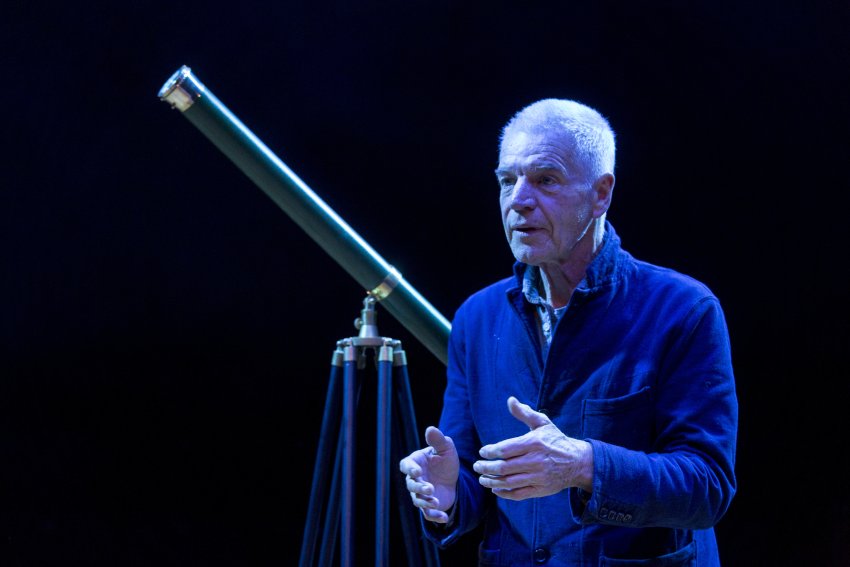
Life of Galileo
By Bertolt Brecht
Adapted by Tom Wright
Directed by Eamon Flack
Belvoir St Theatre, Sydney
Until September 15
Life of Galileo, Bertolt Brecht’s classic play of truth, lies and science, stars Colin Friels as Galileo and is directed by the Helpmann Award-winning Belvoir Artistic Director, Eamon Flack.
Watching Galileo’s heroic challenge to the dominant idea that the Earth was the centre of the universe, one can’t help but draw the parallels with today’s equivalents: climate denialism and the retreat from science; the labelling of inconvenient truths as “fake news”; attacks on academic freedom; the threat to the media and criminalisation of whistleblowers all come to mind.
Brecht, who was an avid student of Marxism, wrote the first version of Life of Galileo in exile in Denmark where he had fled from Nazism in 1938, just before World War II. Brecht’s English version opened in the United States in 1947 in the shadow of the Cold War. In October that year, he was hauled before the House Un-American Activities Committee. The next day he returned to Europe, settling in the former East Germany.
Performed in the round, the original play has been adapted by Tom Wright into a “concentrated” performance of 16 scenes, beginning with “Ptolemy’s Universe”, which is set in Padua in February, 1609, and ending with the final scene, “The Border”, where Galileo’s book, the Discourse, written in secret, finally crosses the Italian border in 1637.
The play features excellent performances from the cast, a simple set design, with creative use of lighting and sound effects. This minimalist approach to set design means the emphasis is on the characters and script, and this helps the play’s message retain its relevance within current political and social realities.
“In the popular mind, theatre is synonymous with 'faking it', when actually theatre is one of the few crucibles of truth left, and the world outside is a pack of comfortable convenient lies,” said Flack.
“It’s no coincidence that Galileo’s battle against the church and Brecht’s battle against nutbag ideology are the best guide to truth and lies in public life today.
“At a time when governments just make up numbers this play is an invigorating dose of honesty. Its central character’s love of facts, free thought, our capacity for working out better ways of doing things, is just such a relief. More truth!”
This unmissable play is an eerie reminder of the still pervasive power of religion over science and the tensions between the pursuit of knowledge and the power of official ideology.
Brecht’s class politics are at the forefront. Life of Galileo is a critique of the role of religious institutions, the political class and their ideological servants in perpetuating the status quo, quelling class discontent and rebellion.